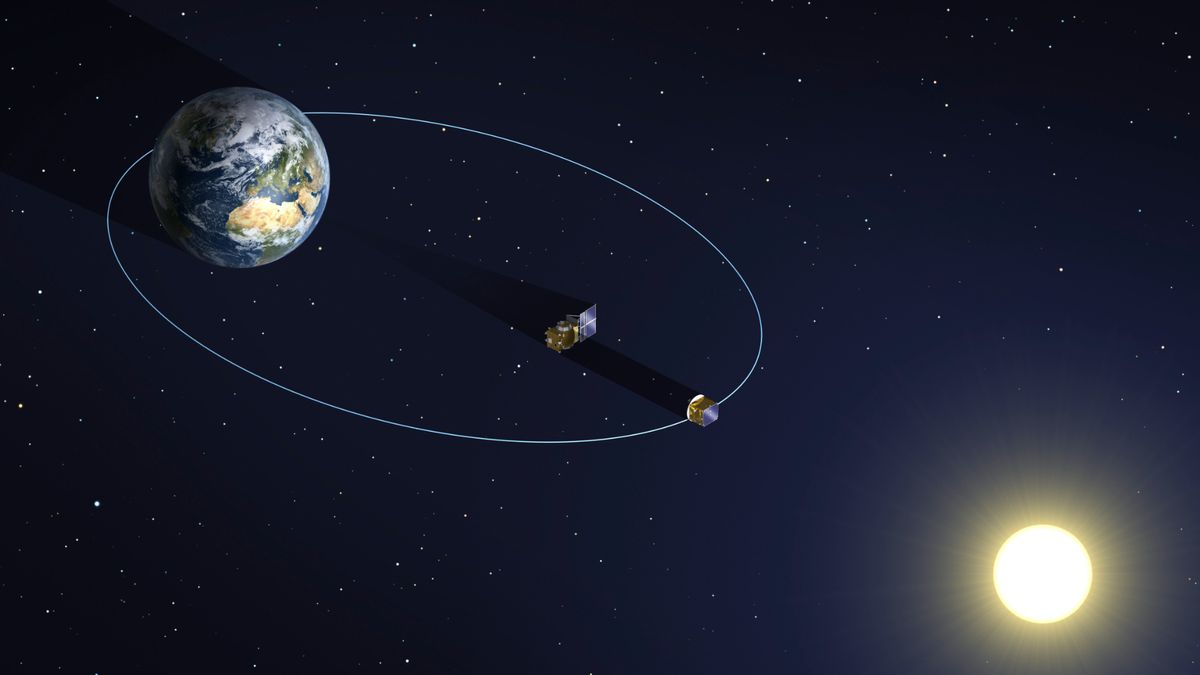ARTICLE AD BOX

TAMPA, Fla. — German launch services provider Exolaunch is working with non-U.S. customers to reclaim most of the tariffs they must pay to deploy their satellites via SpaceX.
U.S. President Donald Trump imposed a 10% tariff on most imports entering the United States April 2, calculated based on the declared value of the goods. Some countries face even higher tariffs or additional trade restrictions.
The tariffs pose an additional hurdle for startups that lack the financial resources to absorb unexpected costs, compounding the uncertainty newcomers already face as they try to gain a foothold in the space industry.
Arad Gharagozli, CEO of Canada-based satellite startup Galaxia, said his company was recently hit with a 25% duty to ship its first spacecraft to California for a launch this June on a SpaceX rideshare mission.
He said the startup considered canceling the mission while seeking an alternative launch provider, before coming up empty.
“Given the short notice and significant implications of pulling out we decided to absorb the cost and go ahead with the launch,” Gharagozli added.
However, the U.S. Customs and Border Protection (CBP) offers a Duty Drawback program that allows operators to recover up to 99% of the duties paid on goods that are exported or re-exported, including satellites delivered for launch.
Jeanne Allarie, Exolaunch’s chief marketing officer, said the company is managing this process on behalf of Galaxia and other customers using its deployment dispenser for SpaceX’s upcoming Transporter-14 mission.
“It’s not a quick nor easy process, but given the amounts that we’re talking about, it is definitely worth it to our customers,” Allarie said.
Information is limited on how the Duty Drawback process works, according to Gharagozli, who said the venture had to scramble at short notice to pay 25% of the satellite’s value, without giving details.
“That is a huge burden on any company let alone startups,” he said.
He declined to disclose financial details. Last year, the Canadian Space Agency announced it had awarded the startup 1.7 million Canadian dollars ($1.2 million) to help the Earth observation demonstration satellite, called Möbius.
Before Trump’s latest tariffs, satellites imported into the U.S. for launch were generally exempt from duties under the Harmonized Tariff Schedule of the United States (HTSUS).
The new tariffs also apply to foreign satellites launched from U.S. soil by United Launch Alliance, Blue Origin and others.
They do not apply to Rocket Lab launches from New Zealand, despite the company being based in the U.S., as long as the satellite does not transit through the country. The tariffs would apply if the satellite is launched from Rocket Lab’s U.S. site at Wallops Island, Virginia.
While some non-U.S. companies are scrambling to navigate the new tariff environment, others appear better positioned.
MDA Space’s CEO recently said its preliminary analysis shows most of the established Canadian manufacturer’s exports, including finished satellites, comply with the United States–Mexico–Canada Agreement (USMCA).
This would allow MDA Space, which is currently building satellites for operators including U.S.-based Globalstar, to avoid the new tariffs altogether by qualifying for duty-free treatment at the time of import, rather than relying on the Duty Drawback process.
The company declined to provide further details.
Jason Rainbow writes about satellite telecom, finance and commercial markets for SpaceNews. He has spent more than a decade covering the global space industry as a business journalist. Previously, he was Group Editor-in-Chief for Finance Information Group,... More by Jason Rainbow

 4 hours ago
1
4 hours ago
1









 English (US) ·
English (US) ·